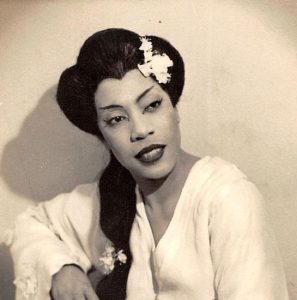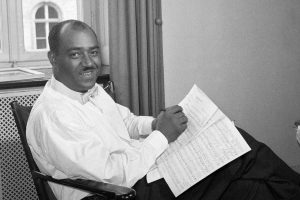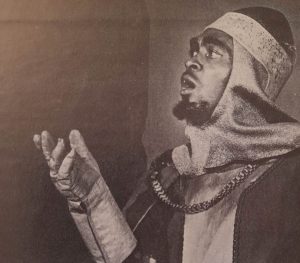Podcast: Play in new window | Download (Duration: 1:12:28 — 75.5MB) | Embed
Subscribe: Spotify | TuneIn | RSS | More
Every so often I discover a singer who had previously not come under my radar, but who simply blows me away with their voice, artistry, and communicative powers. Such an artist is the Baton Rouge-born African American soprano Lenora Lafayette (1926-1975), historically important as the first Black artist to perform at Covent Garden. Relocating to Basel shortly after finishing her training under Dusolina Giannini at Juilliard, Lafayette encountered early career success in Switzerland, winning the Geneva Competition and making a highly successful debut at the Basel Opera as Aida, a role which, along with Madama Butterfly, she performed hundreds of times. And yet, despite enormous career success in Europe, she was never able to establish herself in her native country. Her recorded legacy is slim but revelatory: an Aida in German under Clemens Krauss; a 1958 BBC recording of Frederick Delius’s opera Koanga; and a single commercial recording of Puccini duets with Welsh tenor Richard Lewis under the baton of John Barbirolli, who also led her Covent Garden debut. All of these precious documents are sampled on this episode. She was struck down with cancer in her early forties and died prematurely at the age of 49. And yet listening to her recordings, one is struck by the emotional power of her utterance, the firmness of her vocal technique, and the bloom of her exquisite voice. Lenora Lafayette deserves a place among the greatest singers of her generation. This episode was first published during Countermelody’s second season; listening to Lafayette again, I realize just how accurate my initial impressions of her were.
Countermelody is a podcast devoted to the glory and the power of the human voice raised in song. Singer and vocal aficionado Daniel Gundlach explores great singers of the past and present focusing in particular on those who are less well-remembered today than they should be. Daniel’s lifetime in music as a professional countertenor, pianist, vocal coach, voice teacher, and journalist yields an exciting array of anecdotes, impressions, and “inside stories.” At Countermelody’s core is the celebration of great singers of all stripes, their instruments, and the connection they make to the words they sing. By clicking on the following link (https://linktr.ee/CountermelodyPodcast) you can find the dedicated Countermelody website which contains additional content including artist photos and episode setlists. The link will also take you to Countermelody’s Patreon page, where you can pledge your monthly support at whatever level you can afford. Bonus episodes available exclusively to Patreon supporters are currently available and further bonus content including interviews and livestreams is planned for the upcoming season.

